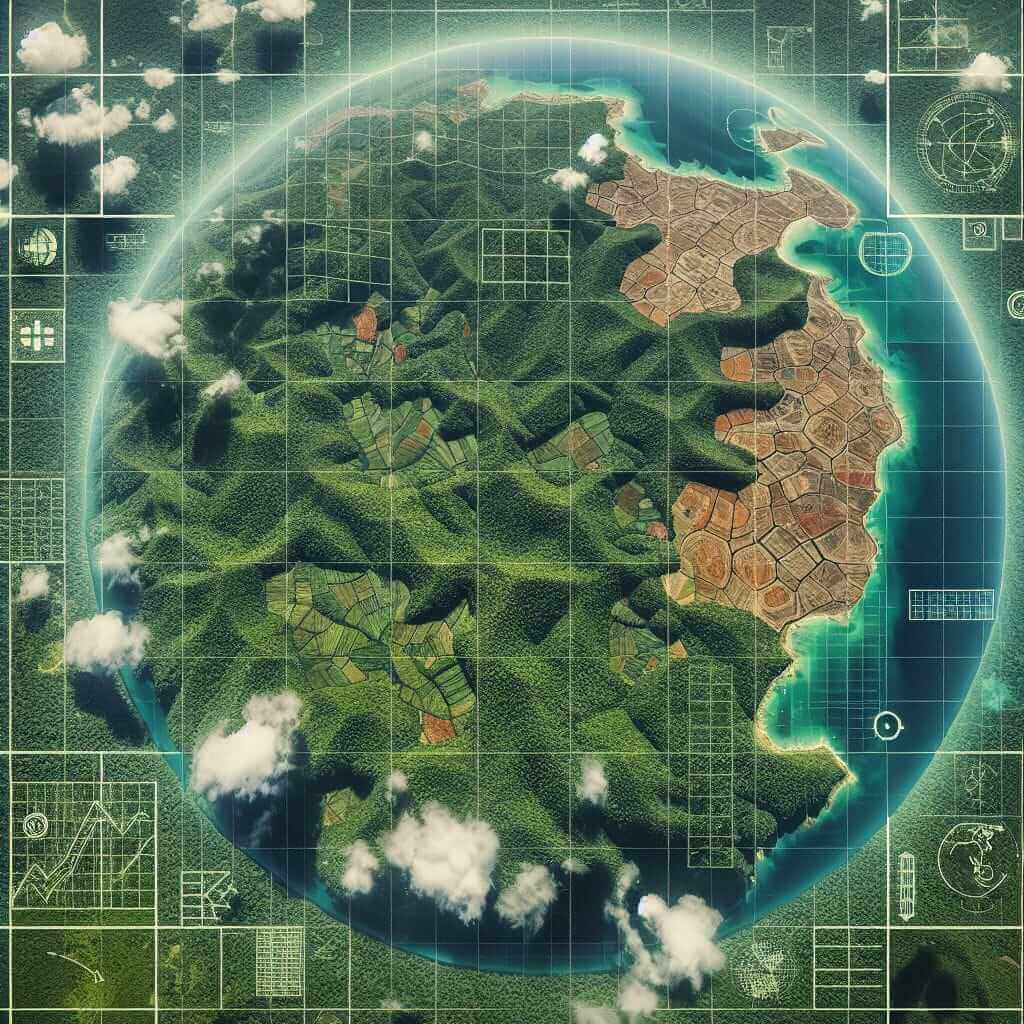The IELTS Reading test demands a comprehensive understanding of passages and the ability to answer diverse question types accurately. This article will guide you through a sample reading text focusing on the contemporary and significant theme: “How is technology enhancing environmental conservation efforts?” This subject has appeared in past IELTS examinations due to its relevance and potential discussion points. Given the increasing importance of environmental conservation and technological advancements, it is likely to surface again in future IELTS exams.
Reading Passage
Technology’s Role in Environmental Conservation
In recent years, technology has played an increasingly crucial role in safeguarding our environment. From advanced data analytics to innovative field applications, technology is at the forefront of environmental conservation efforts.
Use of Drones
One of the most significant technological advancements aiding conservation is the use of drones. Drones are extensively used in wildlife monitoring, forest management, and even in controlling illegal activities like poaching. Their ability to access remote areas provides researchers with invaluable data on species’ behaviors, population sizes, and habitat conditions.
Data Analytics and AI
Artificial Intelligence (AI) and data analytics have transformed how conservationists understand and tackle environmental issues. AI algorithms analyze vast amounts of ecological data to predict potential threats, enabling proactive measures. For instance, AI-driven models help predict forest fires and assess biodiversity health.
Renewable Energy Technology
Renewable energy technologies, such as solar and wind power, significantly reduce the carbon footprint. These technologies are fundamental in combating climate change, the largest threat to global biodiversity. The continual advancement in renewable energy efficiency is decreasing reliance on fossil fuels, promoting cleaner and more sustainable ecosystems.
Satellite Imaging
Satellite imaging offers comprehensive and continuous monitoring of Earth’s ecological zones. This technology aids in tracking deforestation, glacier melt rates, and urban expansion impacts on natural habitats. The detailed images and data collected facilitate precise intervention strategies to mitigate environmental damage.
Bioremediation Technologies
Bioremediation technologies employ biological agents, such as microorganisms and plants, to cleanse polluted environments. These technologies are effective in treating oil spills, heavy metal contamination, and wastewater. This method is less intrusive compared to traditional mechanical clean-ups and thus preserves the natural integrity of ecosystems.

Questions
Multiple Choice
-
What is one of the main uses of drones in environmental conservation?
a) Predicting forest fires
b) Monitoring wildlife
c) Planting trees -
Which technology helps in predicting environmental threats through data analysis?
a) Drones
b) Satellite Imaging
c) Artificial Intelligence
Identifying Information (True/False/Not Given)
-
Drones are only used for monitoring forests.
a) True
b) False
c) Not Given -
Renewable energy technologies have entirely eliminated the use of fossil fuels.
a) True
b) False
c) Not Given
Matching Sentence Endings
- Satellite imaging helps in
a) cleaning up oil spills.
b) monitoring Earth’s ecological zones.
c) reducing carbon footprints.
Answer Keys
-
b) Monitoring wildlife.
Rationale: The text states that drones are used extensively for wildlife monitoring. -
c) Artificial Intelligence.
Rationale: It is mentioned that AI and data analytics analyze ecological data to predict threats. -
b) False.
Rationale: The passage indicates that drones are used for various purposes beyond forest monitoring, such as controlling poaching and habitat conditions. -
c) Not Given.
Rationale: The text discusses renewable energy technologies reducing dependence on fossil fuels but does not state they have entirely eliminated them. -
b) monitoring Earth’s ecological zones.
Rationale: Satellite imaging is highlighted as a technology that offers comprehensive monitoring of ecological zones.
Common Errors
Students often misinterpret detailed information and fail to understand implied meanings. For instance, assuming that drones are solely used for forest monitoring can lead to incorrect answers.
Vocabulary
-
Conservation (noun) /ˌkɒnsəˈveɪʃən/:
- Definition: The protection and preservation of the environment.
- Example: Conservation efforts are crucial for maintaining biodiversity.
-
Poaching (noun) /ˈpoʊtʃɪŋ/:
- Definition: Illegal hunting or capturing of wild animals.
- Example: Many organizations use technology to combat poaching.
-
Bioremediation (noun) /ˌbaɪoʊˌriːmidiˈeɪʃən/:
- Definition: The use of living organisms to remove contaminants from the environment.
- Example: Bioremediation technologies help clean up oil spills effectively.
Grammar Focus
Passive Voice
- Structure: Subject + auxiliary verb (be) + past participle + (by + agent).
- Example: Drones are extensively used in wildlife monitoring.
- Usage: Passive voice is often used in technical texts to emphasize the action rather than the doer.
Relative Clauses
- Structure: Main clause + relative pronoun (who/whom/whose/which/that) + relative clause.
- Example: Renewable energy technologies, which are fundamental in combating climate change, are crucial for sustainability.
- Usage: Relative clauses add essential information to nouns and make the text more informative.
Advice for High IELTS Reading Scores
- Familiarize yourself with various question types by practicing regularly.
- Skim the passage first to get a general idea, then read it carefully.
- Highlight or underline key information.
- Manage your time wisely; don’t spend too long on a single question.
- Review your answers if time allows, ensuring accuracy.
Achieving a high score in the IELTS Reading section requires a mix of strategy and continuous practice. Focus on improving your vocabulary, understanding complex sentences, and practising different question types. With consistent efforts, you will significantly enhance your reading skills and boost your test performance.